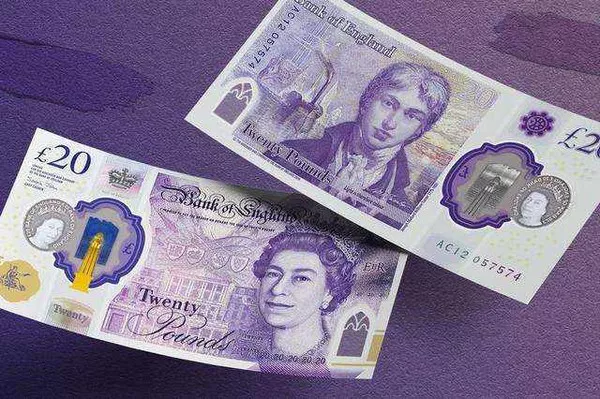The value of a currency is a reflection of a nation’s economic health, geopolitical stability, and market sentiment. For the British pound sterling (GBP), its fluctuations are closely watched by investors, businesses, and policymakers alike. In recent times, there have been concerns regarding the potential decline of the pound. This article delves into the various factors influencing the pound’s movement, potential scenarios, and considerations for investors.
Economic Indicators
GDP Growth
One of the primary indicators influencing a currency’s strength is the country’s GDP growth. A robust GDP growth signifies a healthy economy, which typically supports a stronger currency. Conversely, sluggish growth or economic contraction can weigh on the currency’s value. In recent years, the UK has faced economic uncertainties, including Brexit-related challenges and the global economic downturn triggered by the COVID-19 pandemic. While the UK economy has shown resilience, uncertainties persist, impacting investor confidence in the pound.
Inflation Rate
Another crucial economic indicator impacting currency valuation is the inflation rate. Central banks often adjust interest rates in response to inflationary pressures to maintain price stability. The Bank of England (BoE) aims for an inflation rate of around 2%. Persistently high inflation can erode purchasing power, leading to currency depreciation. Conversely, low inflation may signal economic weakness, also influencing currency depreciation. Monitoring inflation trends is vital for assessing the pound’s future direction.
Geopolitical Factors
Brexit Uncertainties
Brexit continues to cast a shadow over the UK’s economic landscape. While the UK officially exited the European Union (EU) in January 2020, uncertainties persist regarding future trade agreements, regulatory frameworks, and market access. The protracted negotiations and uncertainty surrounding the post-Brexit landscape have contributed to volatility in the pound’s value. Any developments or lack thereof in Brexit negotiations can significantly impact the pound’s trajectory.
Global Trade Dynamics
As a major global trading hub, the UK’s currency is also influenced by international trade dynamics. Trade tensions, tariffs, and geopolitical conflicts can affect trade flows and investor sentiment towards the pound. Moreover, shifts in global demand for UK goods and services can impact the country’s trade balance, influencing the pound’s value. Keeping abreast of global trade developments is crucial for understanding the pound’s potential movements.
Monetary Policy
Central Bank Policies
Central bank policies play a pivotal role in shaping a currency’s value. The Bank of England sets monetary policy to achieve its dual mandate of price stability and maximum sustainable employment. Interest rate decisions, quantitative easing programs, and forward guidance all influence investor expectations and, consequently, currency movements. Traders closely monitor BoE announcements and policymakers’ statements for insights into future monetary policy direction.
Quantitative Easing (QE)
In response to economic challenges, central banks may implement QE programs to stimulate the economy and support financial markets. QE involves purchasing government bonds or other assets to inject liquidity into the financial system. While QE can help bolster economic activity, excessive monetary stimulus may lead to currency depreciation due to concerns about inflation and currency devaluation. The impact of QE measures on the pound depends on market perceptions of their effectiveness and potential long-term consequences.
Investor Sentiment
Risk Appetite
Investor sentiment plays a significant role in currency markets. During times of heightened uncertainty or risk aversion, investors may seek safe-haven assets, such as the US dollar or Japanese yen, leading to depreciation of riskier currencies like the pound. Conversely, improving risk appetite and confidence in the UK economy can support the pound’s strength. Monitoring investor sentiment indicators and market positioning can provide insights into potential currency movements.
Speculative Flows
Speculative trading activities can also influence currency valuations. Hedge funds, institutional investors, and retail traders engage in currency speculation based on macroeconomic trends, technical analysis, and market sentiment. Large speculative positions can exacerbate currency volatility and lead to rapid price movements. Understanding speculative flows and market positioning is essential for assessing short-term currency outlooks.
FAQs
1. How does Brexit impact the pound’s value?
Brexit has introduced significant uncertainties into the UK’s economic landscape, affecting trade, investment, and market sentiment. Negotiations over trade agreements, regulatory frameworks, and market access can lead to volatility in the pound’s value. Any developments or lack thereof in Brexit negotiations can influence investor confidence and the pound’s trajectory.
2. What role does the Bank of England play in shaping the pound’s value?
The Bank of England (BoE) sets monetary policy to achieve its objectives of price stability and maximum sustainable employment. Interest rate decisions, quantitative easing programs, and forward guidance all influence investor expectations and, consequently, currency movements. BoE policymakers’ statements and announcements are closely monitored by traders for insights into future monetary policy direction.
3. How do global trade dynamics affect the pound?
As a major global trading hub, the UK’s currency is influenced by international trade dynamics. Trade tensions, tariffs, and geopolitical conflicts can impact trade flows and investor sentiment towards the pound. Moreover, shifts in global demand for UK goods and services can influence the country’s trade balance, affecting the pound’s value. Monitoring global trade developments is essential for understanding the pound’s potential movements.
See Also Why Is Pound Strengthening? An In-Depth Analysis
Conclusion
The outlook for the British pound remains subject to various economic, geopolitical, and monetary factors. While uncertainties surrounding Brexit and global trade dynamics pose challenges, the UK’s economic resilience and policy responses also offer potential support for the pound. Investors and market participants should remain vigilant, staying informed about key developments and indicators influencing currency markets.


